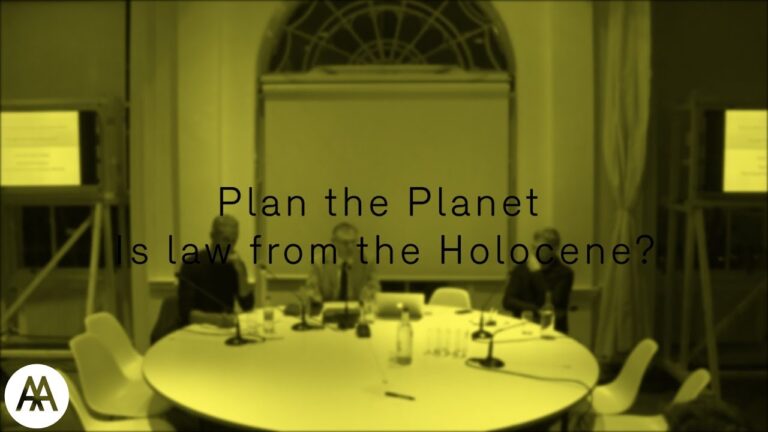
Law is inscribed on the earth as an horizon: the intersection between lines of sight and the surface of the planet. The horizon both fixes a location and establishes a backdrop. It marks a position and an escape. Today, seas are ploughed and hard-gridded, deltas are consolidated and restructured, skies articulated and relayed. The Anthropocene is inverting agencies across the globe: from figures to ground. Lands are destabilised, and subsiding, the seas are made solid, carved up and divided, deltas are channeled and tempests man-made. The tangential condition of the horizon is opened up. No lands, oceans and skies to appropriate and subdivide. The Earth is no longer inert, it is moved, and it moves us.
Davor Vidas is Research Professor in International Law and Director of the Law of the Sea Programme at the Fridtjof Nansen Institute, Norway, and Honorary Visiting Professor at the University of Leicester, UK. He is a member of the Anthropocene Working Group and Chair of the Committee on International Law and Sea Level Rise at the International Law Association. During the course of the past 25 years, he served as Principal Investigator for several major research projects on international law and interdisciplinary approaches to ocean issues. Professor Vidas is the author or editor of ten books on international law, and also serves as the Editor-in-Chief of the journal monograph series Brill Research Perspectives on the Law of the Sea and of a popular-science book series Anthropocene.
Alain Pottage holds degrees from the University of Edinburgh and the London School of Economics. Before joining the Law Department of the LSE, he was a researcher at the Law Commission and a lecturer in the School of Law at King’s College London. He has been a visiting professor at the Ecole des Hautes Etudes in Paris, the University of Sydney, and Cornell Law School. Alain Pottage’s current research projects focus on three areas. Together with Mario Biagioli, he is writing a critical historical study of the foundations of modern intellectual property discourses. He is preparing a monograph on the historical sociology of brands and trade marks, with particular reference to the medial and material agency of contemporary brands. The third research project is on the implications of the Anthropocene hypothesis for law, first part published as ‘Our Geological Contemporary’.
source